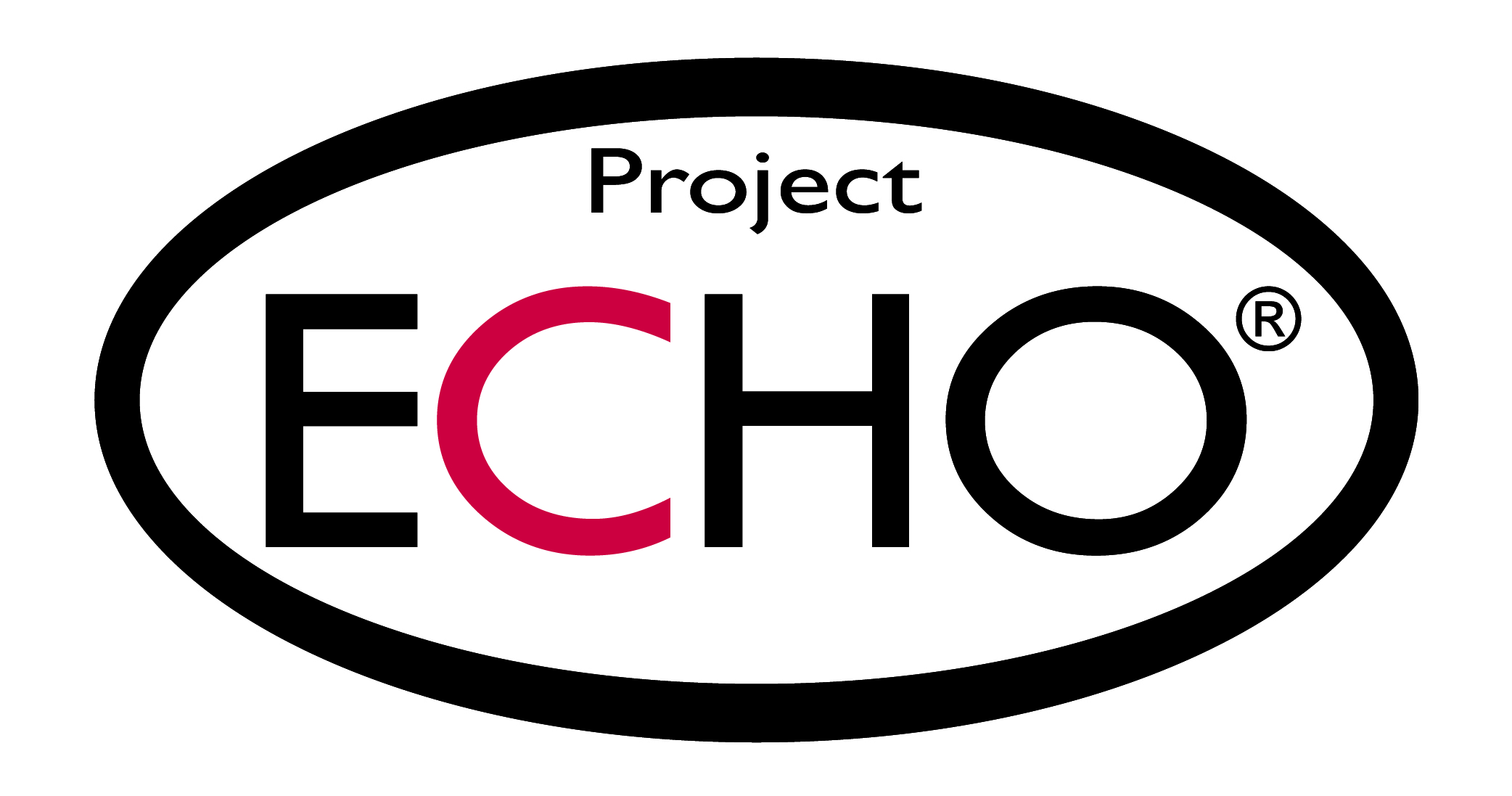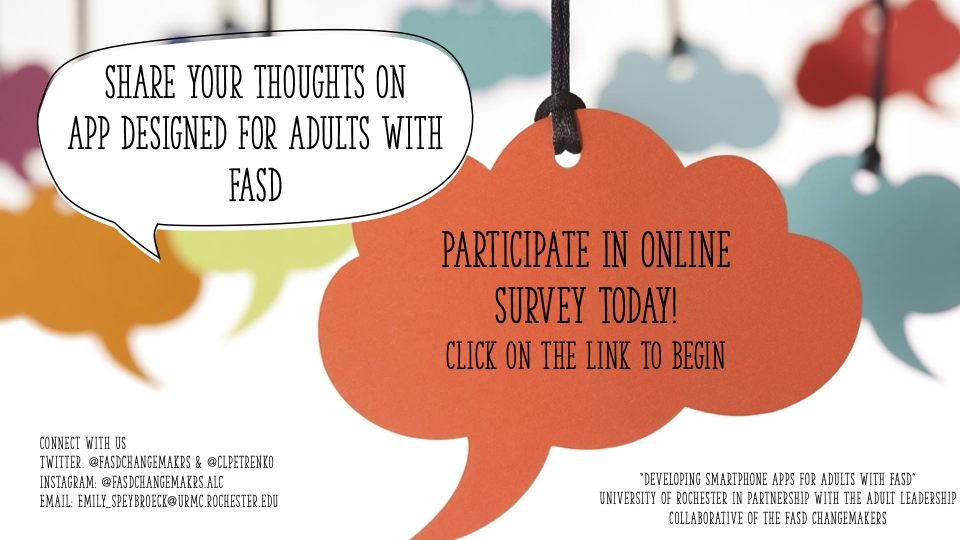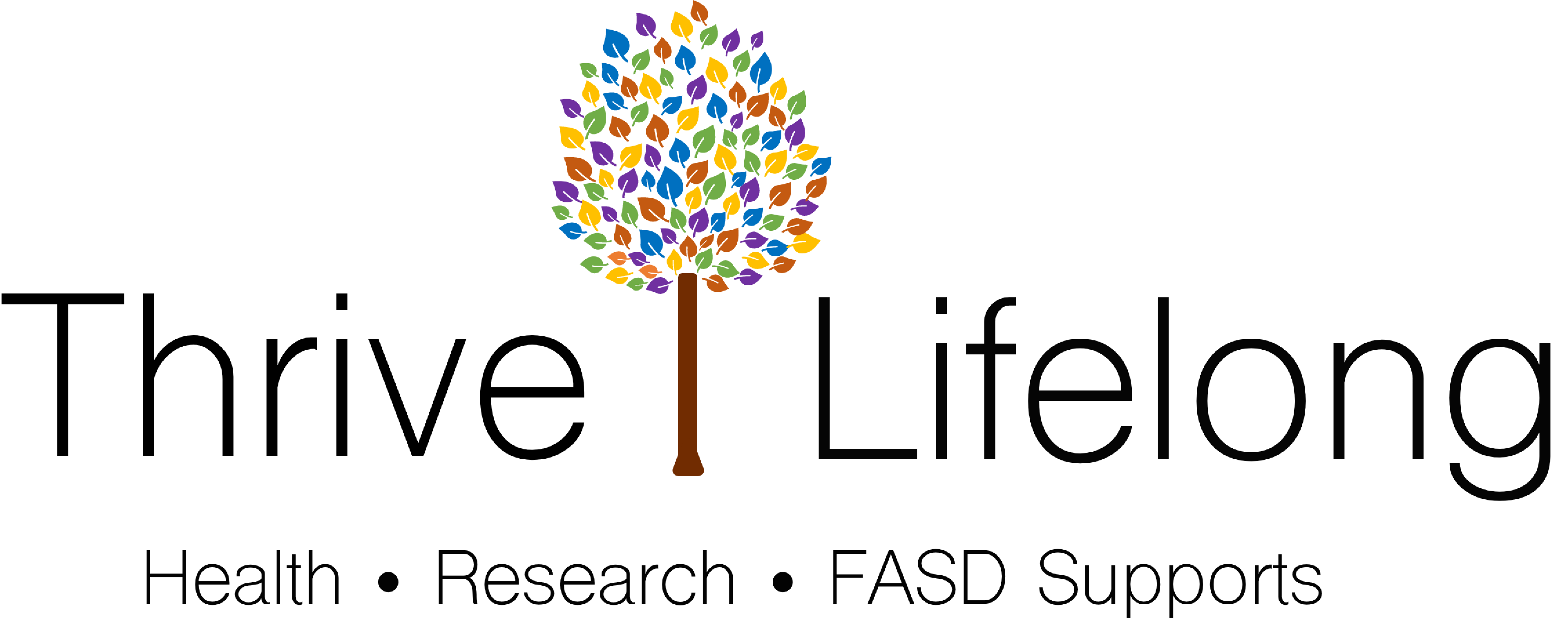Newsletter - October 2022

Tip of the Month
Accommodations are changes made to a person’s environment to help improve their functioning. Accommodations make the environment a better fit to the individual's "acts-like" age, and to their profile of strengths and challenges. A good example of accommodation for children is for parents to keep instructions short and sweet. This will be easier for the child to process! An example of an accommodation for an adult could be setting alarms for daily tasks and appointments!
Focus Groups for Provider App

Are you a mental health provider who works with families? You may qualify for this study!
Do you know a mental health provider who might be interested? Tell them about this opportunity to help advance the care for children with fetal alcohol spectrum disorders (FASD).
This is an opportunity to participate in a focus group to provide feedback on an app we are developing for providers to use with families. Providers receive $25 for participating.
We are looking to include mental health providers and trainees with and without experience with FASD. This study will help us develop an app and training materials for mental health providers to better identify and serve children with FASD. The app will provide resources, tools, and information on how to help families.
To learn more and sign up: https://bit.ly/Providerapp.
Questions?
Email: fmfconnect@urmc.rochester.edu
Call: (585) 275-2991 x 334
You are also welcome to pass along information about this study to colleagues and networks through email and social media. Thanks for your support!!!
Project ECHO FASD

Uncover a common disability that is impacting children in your practice! About 2-5% of children in the U.S. have FASD, and that rate might be higher in your practice!
Whether you’re a Nurse Practitioner, Physician, or Physician’s Assistant working in primary care, mental health, residential treatment, or other community settings, YOU CAN MAKE A DIFFERENCE! Be a part of the solution to breaking down barriers to care in YOUR community!
What is ECHO FASD?
ECHO FASD gives community professionals knowledge and mentorship to care for patients with FASD close to home and bridges the gap between FASD specialists, community healthcare providers, and children with FASD and their families. It does this by using an evidence-based approach to move knowledge, not people.
How will ECHO FASD help my patients?
ECHO FASD works to break down barriers to care including wait time, travel costs, and access to informed care. At present, over 80% of children with FASD go undiagnosed or misdiagnosed, which can increase risks for later life problems. Uncovering this disability can help! An accurate diagnosis is essential to ensuring effective treatment and community supports
What do I get from joining ECHO FASD?
You would receive:
When is the ECHO FASD happening?
The second and fourth Fridays of the month starting October 28th, 2022! There will be 10 sessions in total and will be 1 hour long from 11:30 am - 12:30 pm Eastern Standard Time on Zoom.
For questions, contact Lynn Cole at: lynn_cole@urmc.rochester.edu
Adults with FASD Invited to Fill Out Surveys for Adult App Project

Adults needed for Fetal Alcohol Spectrum Disorder (FASD) mobile health app research!
The next step of the Adult App project is here, which involves an online surveys for adults with FASD to provide feedback on initial design prototypes. Adults with FASD around the world can participate as long as they are 18+ and have sufficient enough English proficiency to complete the survey.
This app hopes to provide resources, tools, and information to improve physical health and quality of life for adults with FASD or known prenatal alcohol exposure.
Click the link below to go to the survey!
Please consider sharing the survey on your relevant platforms: https://bit.ly/FASDApp
Already enrolled? Help us spread the word! You can send other parents and caregivers to our website or have them email us!
Email Emily_Speybroeck@URMC.rochester.edu with any questions.
Research Corner

Teaching Self-Management Strategies to a Child with Fetal Alcohol Spectrum Disorder to Increase Independent Task Completion within Typical Home Routines
Copeland, Griffin, DiLuzio & Maez (Journal of Education and Training in Autism and Developmental Disabilities, 2021)
Many studies have shown that Applied Behavior Analysis (ABA) interventions can help manage conditions and problems behaviors in individuals with developmental disabilities such as autism spectrum disorder. ABA interventions typically include a functional behavioral assessment (FBA) to understand the purpose or need a behavior is trying to achieve. The analyst observes what happens before and after a behavior to help inform what types of strategies or interventions might help get that same need met in a better way. Effectiveness of ABA interventions with children and adults with FASD is limited.
Researchers in the University of New Mexico and Whitworth University designed a single-case study to examine the effectiveness of a self-monitoring intervention for children with FASD. The participant was a nine-year-old boy with FASD called Jake. Jake’s caregiver Nancy also participated in this study. Before and after the intervention, Nancy and Jake each completed interviews and observations. Nancy also completed the Eyberg Child Behavior Inventory before and after the intervention to measure behavior change. A FBA was completed. Problem behaviors identified were related to independent task completion. Based on Nancy’s answers and the researchers’ observation, the researchers designed a personalized self-monitoring intervention for Jake. The targeted behaviors in the resulting plan were cleaning room or finishing homework task without prompting. Jake was taught how to use a personalized checklist of each step in the task and to check off each step on the list after completing it. He would receive rewards if he completed the tasks without prompting.
The study had 4 phases: baseline, training/intervention, reversal, and reintroduction. During each phase, Jake’s behavior and completion of the tasks were recorded. The data analysis showed that Jake’s completion of targeted behaviors increased during the active intervention period. The completion rate dropped after the intervention but increased again after reintroduced the intervention. One year later after the study, Nancy reported that Jake continued doing better than before then intervention. This result suggests that self-monitoring interventions using ABA principles may be helpful for children with FASD. Further study with larger numbers of children and adults with FASD and their families would be beneficial to understand who benefits most from these approaches and how to increase access to supports.
